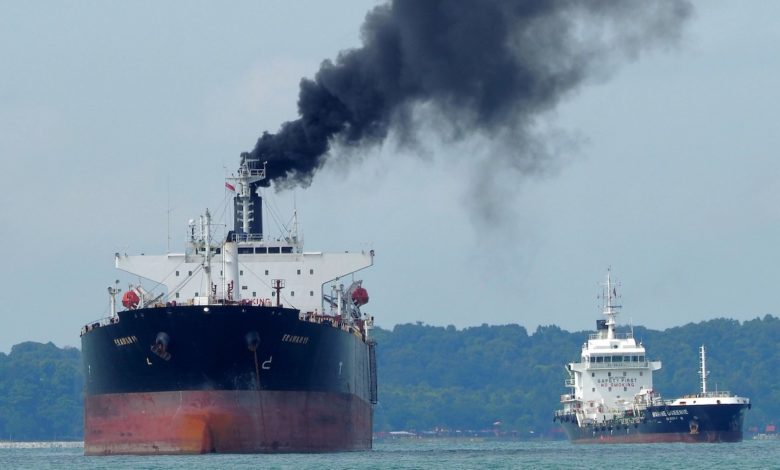UN secretary-general lashes shipping’s decarbonisation ambition to date

With just over two weeks to go until COP26, a major international climate summit, the secretary-general of the United Nations, António Guterres, has taken aim at shipping and aviation for their slowness down the path towards decarbonisation.
Speaking at the Global Sustainable Transport conference on Thursday, Guterres said: “Let’s be honest. While [UN] member states have made some initial steps through the International Civil Aviation Organization and the International Maritime Organization (IMO) to address emissions from shipping and aviation, current commitments are not aligned with the 1.5C goal of the Paris agreement. In fact, they are more consistent with warming way above 3C.”
Both aviation and shipping are expected to face greater scrutiny over their carbon footprint when COP26 delegates gather in Glasgow at the end of the month. Shipping will also find out what upcoming environmental legislation is agreed upon when the IMO’s Marine Environment Protection Committee (MEPC) meets next month.
“Adopting a new set of more ambitious and credible targets that are truly consistent with the goals of the Paris agreement must be an urgent priority for both these bodies [ICAO and IMO] in the months and years ahead,” Guterres said, his comments all the more pertinent as green shipping legislation risks splintering soon with the European Union looking at setting its own shipping green measures.
Guterres also called for zero-emission ships to be made commercially available by 2030.
Splash will be bringing readers regular updates from both COP26 and MEPC over the coming six weeks.

The UN has an agenda which could readily cripple the world’s economies. Everything seems to be up for sacrifice on the altar of alleged global warming. There is some spurious science propping up some untenable positions that would not stand independent (not peer reviewed) forensic audit.
In relation to the maritime sector the bigger culprit is the land side component of transport with trucks being amongst the most toxic emitters. By virtue of their numbers they are more difficult to monitor and control.
The COP 26 sessions will produce a torrent of words and high sounding rhetoric. I do wish someone would be clear and succinct about what the so called crisis or emergency actually is. Much of it appears to be media driven without any robust analysis.
Phil: “Alleged global warming”? Yeesh. The UN talks a good show. But if you’re curious why shipping is among the laggards, you need only examine Guterres’s words: “(decarbonisation) must be an urgent priority for both these bodies [ICAO and IMO] in the months and years ahead”. How do ‘urgent’ and a ‘years ahead’ timeframe fit in the same message? Me thinks the UN’s big stick is little more than a foam finger. Shipping is a laggard because the IMO and the UN allow it be.
@phil – the best short summary of the science (as extensively peer reviewed and confirmed by the overwhelming majority of world science) is the executive summary of the IPCC AR6 report. This is clear we are approaching a 1.5degree guardrail possibly as early as the 2030’s with disastrous consequences. And yes you are correct that land based transport emissions also need to be quickly reduced as well, but this is done under national accountancy using NDCs. There are lots of simple primers on the web for how this works. Of course the need to reduce national shore side emissions in no way reduces the burden on shipping to decarbonise as well.
@M.T.Vassel. Yes, the timeframes for decarbonisation will take months and years, with the most ambitious pathways showing we can get a long way down the track in the next two decades if we make the right policy decisions at IMO now.
Instead of gaslighting from the margins, Pacific high ambition states (Marshalls, Solomons, Kiribati) – who according to the extensively peer reviewed science face a probable existential threat in the near future (this century) without immediate major global policy shifts – are responsibly responding to the SG’s directives with a call to MEPC77 to resolve to double current ambition levels. “Adopting a new set of more ambitious and credible targets that are truly consistent with the goals of the Paris agreement must be an urgent priority for both these bodies [ICAO and IMO] in the months and years ahead,” Guterres said. Be nice if the big rich northern actors actually stepped us and supported the UN chief, but instead are now gaslighting the Pacific’s leadership and sowing rumour that calling member states to actually make a clear succinct declaration on ambition at MEPC77 is incredibly dangerous, divisive and unhelpful to building trust at IMO! Strange world we live in Sam,